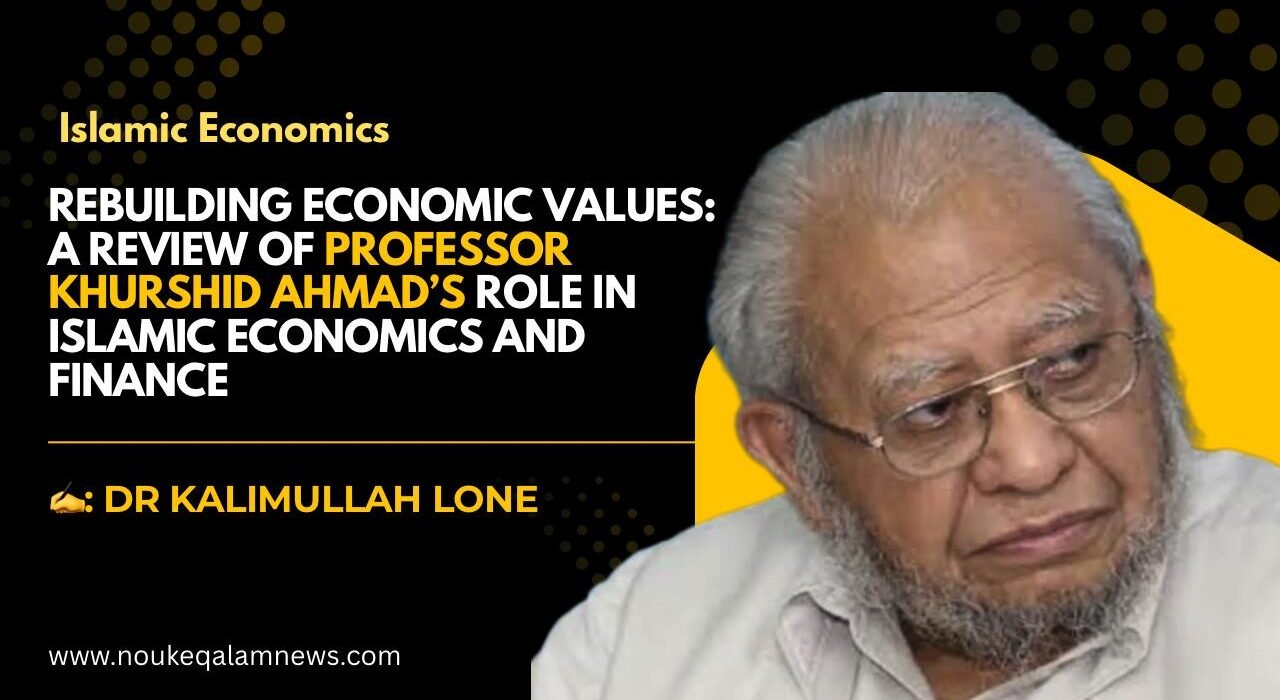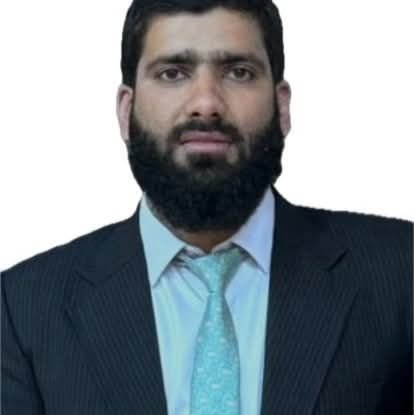In the landscape of 20th-century Islamic intellectual revival, Professor Khurshid Ahmad emerged as a foundational figure whose interdisciplinary scholarship and activist orientation shaped the contours of Islamic economics as both a theoretical discipline and a practical alternative to prevailing global financial systems. At a time when the Muslim world was undergoing decolonization and modernization under Western economic paradigms, Ahmad called for an epistemological reorientation, one that would not only critique but also reconstruct economic thinking in light of Islamic values, law, and worldview.
His contribution is not limited to theoretical formulations. Through academic rigor, institutional advocacy, and global policy engagement, Ahmad catalyzed the rise of Islamic finance from the margins to the mainstream. For this contribution, he was awarded the King Faisal International Prize in Islamic Studies, recognizing his unique role in offering the world an ethical and value-centric economic model.
𝑻𝒉𝒆𝒐𝒓𝒆𝒕𝒊𝒄𝒂𝒍 𝑭𝒓𝒂𝒎𝒆𝒘𝒐𝒓𝒌: 𝑫𝒆𝒗𝒆𝒍𝒐𝒑𝒎𝒆𝒏𝒕 𝑩𝒆𝒚𝒐𝒏𝒅 𝑴𝒂𝒕𝒆𝒓𝒊𝒂𝒍𝒊𝒔𝒎
Professor Ahmad’s foundational work, Economic Development in an Islamic Framework (1979), set the stage for what is now considered the first generation of Islamic development economics. In this publication, he decisively rejects both capitalist and socialist frameworks on the grounds of their value-neutrality and anthropocentric assumptions. According to Ahmad:
“The major contribution of Islam lies in making human life and effort purposeful and value-oriented… Economic development in an Islamic framework is rooted in the value pattern embodied in the Qur’an and the Sunnah.” (Ahmad, 1979)
He argued that dominant economic models, including the Harrod-Domar growth framework and the neoclassical investment models, fail to accommodate the ethical, distributive, and spiritual dimensions of human well-being. His critique aligns with scholars such as Gunnar Myrdal and E.F. Schumacher, who similarly questioned the reductionism of growth-oriented economics.
Ahmad’s call was not merely for reform but for reconstruction—a term he consciously borrowed from Iqbal’s intellectual vocabulary. For him, the goal was not to Islamize capitalist or socialist constructs but to derive economic norms, priorities, and strategies from Islamic ontology, grounded in tawhid (divine unity), khilafah (human trusteeship), and ‘adl (justice).
𝑹𝒆𝒗𝒊𝒗𝒂𝒍 𝒐𝒇 𝑰𝒔𝒍𝒂𝒎𝒊𝒄 𝑭𝒊𝒏𝒂𝒏𝒄𝒆: 𝑰𝒏𝒕𝒆𝒍𝒍𝒆𝒄𝒕𝒖𝒂𝒍 𝑫𝒆𝒇𝒊𝒂𝒏𝒄𝒆 𝒂𝒏𝒅 𝑰𝒏𝒔𝒕𝒊𝒕𝒖𝒕𝒊𝒐𝒏𝒂𝒍 𝑽𝒊𝒔𝒊𝒐𝒏
Perhaps Ahmad’s most distinguished contribution is his revival of Islamic finance in the modern era. At a time when conventional financial systems, particularly interest-based banking and speculative capital markets, were perceived as essential to development, Ahmad forcefully reintroduced the concept of riba prohibition not only as a legal injunction but as a systemic critique of modern finance.
He viewed Islamic finance not as a parallel industry but as a moral response to the exploitative mechanisms of debt-based economics, positioning profit-and-loss sharing, asset-backed transactions, and risk-sharing as the ethical foundations of financial intermediation. His work influenced early Islamic banking models in Pakistan, Sudan, and Malaysia, and contributed to the intellectual environment that led to the establishment of global institutions such as the Islamic Development Bank, AAOIFI, and IIFM.
Ahmad’s framing of Islamic finance extended beyond jurisprudence; he conceptualized it as part of a civilizational project, a return to a maqasid-driven (purpose-oriented) financial order that prioritized socio-economic justice, financial inclusion, and economic stability.
𝑨𝒄𝒂𝒅𝒆𝒎𝒊𝒄 𝒂𝒏𝒅 𝑰𝒏𝒔𝒕𝒊𝒕𝒖𝒕𝒊𝒐𝒏𝒂𝒍 𝑰𝒎𝒑𝒂𝒄𝒕
In addition to his intellectual contributions, Professor Khurshid Ahmad played a pivotal role in establishing academic institutions and think tanks that facilitated the development of Islamic economics as a formal discipline. The most prominent among them is the Institute of Policy Studies (IPS), Islamabad, which remains a key platform for research, dialogue, and policy innovation in Islamic economics and governance.
His academic writings have become standard references in university curricula across the Muslim world, and his mentorship has produced a generation of economists and scholars committed to value-based reform. His consistent advocacy for Islamization of knowledge also found resonance in IIIT’s global movement, influencing research methodology in Islamic social sciences and ethics.
𝑺𝒄𝒉𝒐𝒍𝒂𝒓𝒍𝒚 𝑹𝒆𝒄𝒐𝒈𝒏𝒊𝒕𝒊𝒐𝒏 𝒂𝒏𝒅 𝑳𝒆𝒈𝒂𝒄𝒚
Professor Khurshid Ahmad’s work received both regional and global acclaim. The King Faisal International Prize, awarded to him in 1990 for his contribution to Islamic Studies, particularly Islamic Economics, recognized his dual role as a theoretical pioneer and a practical reformer.
His legacy today is visible in three domains:
Academic Canon: Islamic economics is now recognized as a legitimate and autonomous field, thanks in large part to Ahmad’s efforts in creating its intellectual foundations.
Institutional Ecosystem: Islamic banks, regulatory bodies, and educational institutions across the globe operate within a conceptual framework that Ahmad helped shape.
Intellectual Resistance: His unwavering stance against economic dependency and ideological imitation remains a guiding principle for scholars working toward epistemological sovereignty.
Professor Khurshid Ahmad’s contribution to Islamic economics and finance represents more than the advancement of a sub-discipline. It embodies a profound intellectual resistance to hegemonic paradigms and a courageous commitment to constructing a value-driven, holistic alternative rooted in Islamic worldview.
As contemporary scholars continue to explore questions of economic justice, sustainability, and ethical finance, they are indebted—whether explicitly or implicitly—to the groundbreaking work of Khurshid Ahmad. He not only revived a tradition that was in intellectual dormancy but demonstrated that Islamic economics is not a nostalgic ideal—it is a viable, necessary, and urgent response to the crisis of modernity.
𝑹𝒆𝒇𝒆𝒓𝒆𝒏𝒄𝒆𝒔
𝘈𝘩𝘮𝘢𝘥, 𝘒. (1979). 𝘌𝘤𝘰𝘯𝘰𝘮𝘪𝘤 𝘋𝘦𝘷𝘦𝘭𝘰𝘱𝘮𝘦𝘯𝘵 𝘪𝘯 𝘢𝘯 𝘐𝘴𝘭𝘢𝘮𝘪𝘤 𝘍𝘳𝘢𝘮𝘦𝘸𝘰𝘳𝘬. 𝘛𝘩𝘦 𝘐𝘴𝘭𝘢𝘮𝘪𝘤 𝘍𝘰𝘶𝘯𝘥𝘢𝘵𝘪𝘰𝘯.
𝘏𝘢𝘴𝘴𝘢𝘯, 𝘔. 𝘜. (2011). 𝘔𝘦𝘦𝘵𝘪𝘯𝘨 𝘸𝘪𝘵𝘩 𝘏𝘪𝘴𝘵𝘰𝘳𝘺: 𝘈 𝘊𝘰𝘯𝘷𝘦𝘳𝘴𝘢𝘵𝘪𝘰𝘯 𝘸𝘪𝘵𝘩 𝘗𝘳𝘰𝘧. 𝘒𝘩𝘶𝘳𝘴𝘩𝘪𝘥 𝘈𝘩𝘮𝘢𝘥. 𝘒𝘺𝘰𝘵𝘰 𝘉𝘶𝘭𝘭𝘦𝘵𝘪𝘯 𝘰𝘧 𝘐𝘴𝘭𝘢𝘮𝘪𝘤 𝘈𝘳𝘦𝘢 𝘚𝘵𝘶𝘥𝘪𝘦𝘴.
𝘈𝘩𝘮𝘢𝘥, 𝘒. (1980). 𝘐𝘴𝘭𝘢𝘮 𝘢𝘯𝘥 𝘵𝘩𝘦 𝘌𝘤𝘰𝘯𝘰𝘮𝘪𝘤 𝘊𝘩𝘢𝘭𝘭𝘦𝘯𝘨𝘦. 𝘓𝘦𝘪𝘤𝘦𝘴𝘵𝘦𝘳: 𝘛𝘩𝘦 𝘐𝘴𝘭𝘢𝘮𝘪𝘤 𝘍𝘰𝘶𝘯𝘥𝘢𝘵𝘪𝘰𝘯.
𝘒𝘪𝘯𝘨 𝘍𝘢𝘪𝘴𝘢𝘭 𝘗𝘳𝘪𝘻𝘦 𝘈𝘳𝘤𝘩𝘪𝘷𝘦𝘴. (1990). 𝘓𝘢𝘶𝘳𝘦𝘢𝘵𝘦𝘴 𝘪𝘯 𝘐𝘴𝘭𝘢𝘮𝘪𝘤 𝘚𝘵𝘶𝘥𝘪𝘦𝘴.





